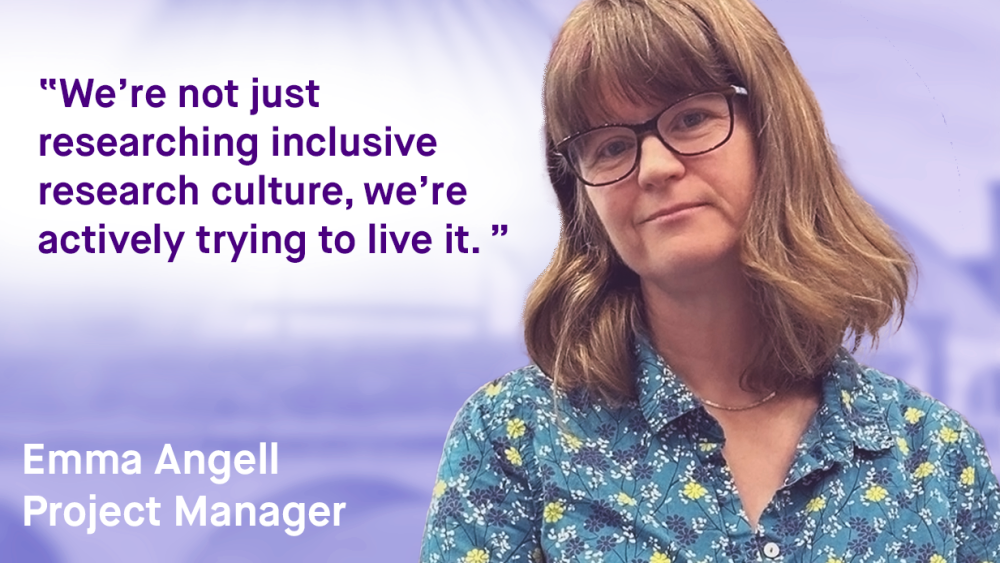Meet Emma Angell, the I-REACCH Project Manager!
“I’m the project manager for Wellcome I-REACCH, so my role cuts across all five workstreams. I help to make sure the project stays on track — that means managing timelines and budgets, coordinating across the different teams, and keeping a clear line of sight on what’s happening and why. I’m also responsible for supporting our mirror leadership team and making sure we have governance and challenge in place — not just in a procedural sense, but as part of building an inclusive and thoughtful project culture. A big part of my role is making sure we actually function as a team — that we listen to each other, reflect, and adapt.”
Anything interesting/cool you want to share about your work?
What I find really energising is that the project genuinely walks its talk — we’re not just researching inclusive research culture, we’re actively trying to live it. For example, our mirror leadership team holds a mirror up to the project — they challenge decisions, highlight blind spots, and shape how we work. It can feel uncomfortable sometimes, but it’s the kind of discomfort that signals growth.
How do you think your work is helping individuals at Leicester and beyond?
I-REACCH is designed to make structural and cultural change feel possible, not overwhelming. It’s not about asking individuals to ‘fix’ themselves — it’s about making the environment more equitable and inclusive. So whether that’s through rethinking how we recruit, providing support through a career passport, encouraging our leaders to lead with empathy, or backing grassroots projects to improve research culture, I hope the impact is practical and lasting. And by sharing what we learn — including what doesn’t work — we can contribute to broader sector-wide change.
What are the circumstances you face while working at I-REACCH that you think reflect on the wider research culture?
One big thing is capacity. Like many others in the sector, we’re working against a backdrop of uncertainty, job freezes, and rising workloads — so engaging people in culture change can be tough when they’re just trying to get through the week. Another is visibility — in large institutions, it’s easy for a culture-focused project to be seen as peripheral. But we’ve found that when people do engage, there’s often real appetite for change — especially when it’s led by peers and grounded in lived experience. That reminds me that culture change isn’t about forcing buy-in; it’s about building trust and relevance over time.

